As a fan of "Pachinko," the internationally acclaimed novel by Min Jin Lee, I closely followed news of its adaptation and eagerly awaited to see how the main character, Sunja, would be brought to life on the screen. What I wasn't expecting from the Apple TV+ adaptation, however, was how much I'd relate Sunja's experiences to that of my own grandparents.
In the first few episodes of the show alone, we see three different versions of Sunja — Sunja as a precocious only child, bright-eyed and pragmatic in facing the harsh realities of Japanese-occupied Korea, Sunja as a carefree teenager who fatefully catches the eye of a handsome stranger in a fish market, and an elderly Sunja as a grandmother in Osaka, preparing for a homebound journey to spread her sister-in-law's ashes.
RELATED: The must-see "Pachinko" is a pure and flawless beauty about the unpredictability of living
While the novel is grandiose in its chronological scope, "Pachinko" as a show starkly differs in that it travels back and forth in time and place. It intersperses cuts of the younger Sunjas, played by newcomers Yuna Jeon and Minha Kim, with the elderly Sunja, played by the effortlessly brilliant Oscar winner Youn Yuh-jung ("Minari"). The show shines most when we are able to trace Sunja's trajectory as she immigrates from Korea to Japan; through Sunja's heartbreak, losses, and goodbyes, we encounter the foundational events that form the older Sunja in her later years. By introducing all of these Sunjas early on, viewers recognize that no matter what unfolds in the series, she will be surrounded by loved ones, and she will live a long and full life.
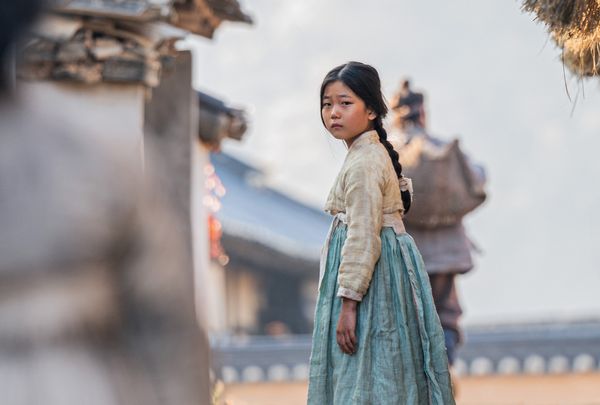 Yuna in "Pachinko" (Apple TV+)
Yuna in "Pachinko" (Apple TV+)
My own grandmother must have sliced her homemade kimchi hundreds of times.
In an earlier scene, teenage Sunja is in her front yard fixing breakfast for the boarding house. She scoops up the gamasot rice and deftly chops a head of Napa cabbage in half on a wooden cutting board. It flashes forward to the older Sunja decades later, slicing kimchi and setting out banchan for her family's breakfast in Osaka.
Want a daily wrap-up of all the news and commentary Salon has to offer? Subscribe to our morning newsletter, Crash Course.
As the sequence implies, it's clear that Sunja has performed this morning routine throughout her lifetime. It's such a simple and seemingly unceremonious act; my own grandmother must have sliced her homemade kimchi hundreds of times before every meal of ours. It's as if seeing her through Sunja, her stooped shoulders a familiar sight as she stirs soybean paste into the pot and prepares kimchi in the early mornings.
As with many Korean elders who have lived through colonial occupation, war, and poverty, my grandparents don't often speak of the past. From what I have gathered: before my grandfather was born, his family migrated to the outskirts of Tokyo in the 1930s, a decade or so after Sunja would have made her own journey across the East Sea. They joined the over 800,000 other Korean migrants who sought economic opportunities in Japan during colonial rule. Korea — or Chosun, as it was called at the time by the West — was destitute, its land stripped bare of wealth and resources by Japan. My great-grandfather, who was a welder, decided to undertake a migration pattern familiar to all who come from colonized nations; when the homeland became uninhabitable, he left for the land of the colonizer to ensure his family's survival.
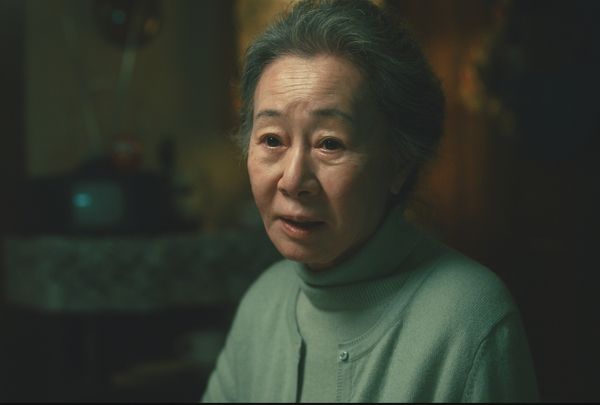 Yuh-Jung Youn in "Pachinko" (Apple TV+)
Yuh-Jung Youn in "Pachinko" (Apple TV+)
Watching "Pachinko" deepened my understanding of my great-grandparents' painful choice to move to a land that detested their very existence.
Consequently, my grandfather's birth country was Japan, and his second language Japanese — a fact I always found fascinating and foreign as a child. Older Korean generations carry a much heavier sense of sorrow and animosity towards Japan for its colonial atrocities, many of which the Japanese government still does not acknowledge to this day. That my grandfather enjoyed reading Japanese novels seemed antithetical to our nation's perpetual boycotts against Japanese products and protests against the sexual slavery of Korean women during Japanese rule that consistently made headlines. Watching "Pachinko" and learning about the persecution that Zainichi Koreans faced during this era also deepened my understanding of my great-grandparents' painful choice to move to a land that detested their very existence.
But "Pachinko" doesn't only portray the sacrifices and labor of Sunja and other Zainichi. When the young Sunja falls for Hansu, the charming and enigmatic Korean-Japanese fish broker, she experiences the thrills and the heartbreak of young love. When Hansu leaves her side, she stares wistfully through the rain like a lovestruck teenager; when he returns from Japan, she giddily runs into his arms. In later episodes, we see the slow love and trust that build between her and her minister husband in Osaka.
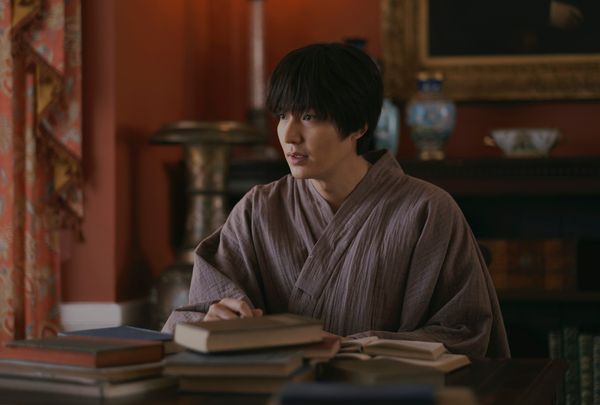 Lee Minho in "Pachinko" (Apple TV+)Unlike the elderly Sunja, who only returns to Korea in her later years, my grandfather's family returned to Korea soon after its liberation in 1945. Most of their savings were in yen, and they quickly discovered that the currency of the recently defeated Japan was virtually worthless in their homeland. They had to start over from scratch once again. My grandfather tells stories of standing on his tiptoes, peering over the ledge of a schoolhouse window to eavesdrop on lessons as he carried firewood back home to his family.
Lee Minho in "Pachinko" (Apple TV+)Unlike the elderly Sunja, who only returns to Korea in her later years, my grandfather's family returned to Korea soon after its liberation in 1945. Most of their savings were in yen, and they quickly discovered that the currency of the recently defeated Japan was virtually worthless in their homeland. They had to start over from scratch once again. My grandfather tells stories of standing on his tiptoes, peering over the ledge of a schoolhouse window to eavesdrop on lessons as he carried firewood back home to his family.
Despite the odds, he would eventually graduate from college by taking night classes after my mother was born. He was the first person who instilled in me a deep love of reading. Every summer, we sat side by side on our sticky bamboo mat with our noses stuck in books. We would spend hours in the sweltering Seoul heat as I flipped through volumes of my latest Korean manhwa fixation and his fingers traced kanji characters. With his other hand, he'd wave a paper fan that slowly cooled us both — a flick of the wrist in my direction, then his. When I am asked how I've retained my Korean into adulthood, I speak of these months etched with a hazy golden nostalgia.
My grandfather was diagnosed with Alzheimer's a few years ago — the man who taught me to love books can read them no longer. The words he reads are almost immediately forgotten, an eraser rubbing away any new entries.
Like the many versions of Sunja, I see glimpses of his past — a vivacious young man and husband, a stern father, an erudite grandfather — alongside his present, ailing self. But as with Sunja, I see the love he's received and given to our family that will remain unchanged. It's difficult with my grandfather's fading memory to ask him questions about his childhood. Perhaps that is why I am so appreciative for a show like "Pachinko," that allows me to envision what his life might would have been like in Japan and Korea, and to see my grandparents' histories onscreen — both their past hardships and their moments of jubilation.
"Pachinko" is currently streaming on Apple TV+.
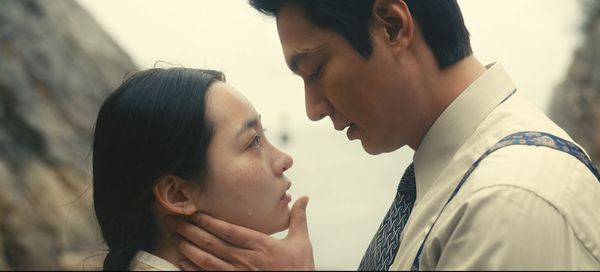 Pachinko (Apple TV+)
Pachinko (Apple TV+)
More stories to read:
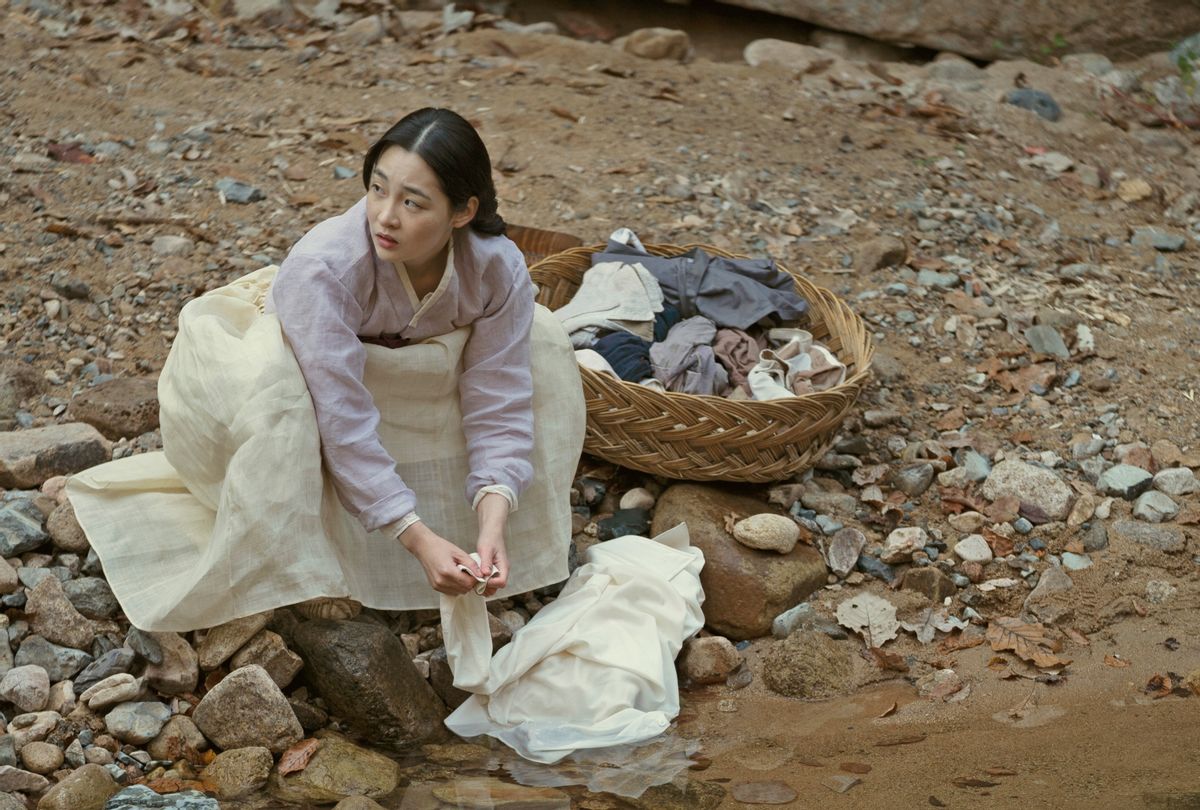
Shares